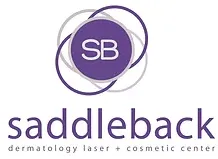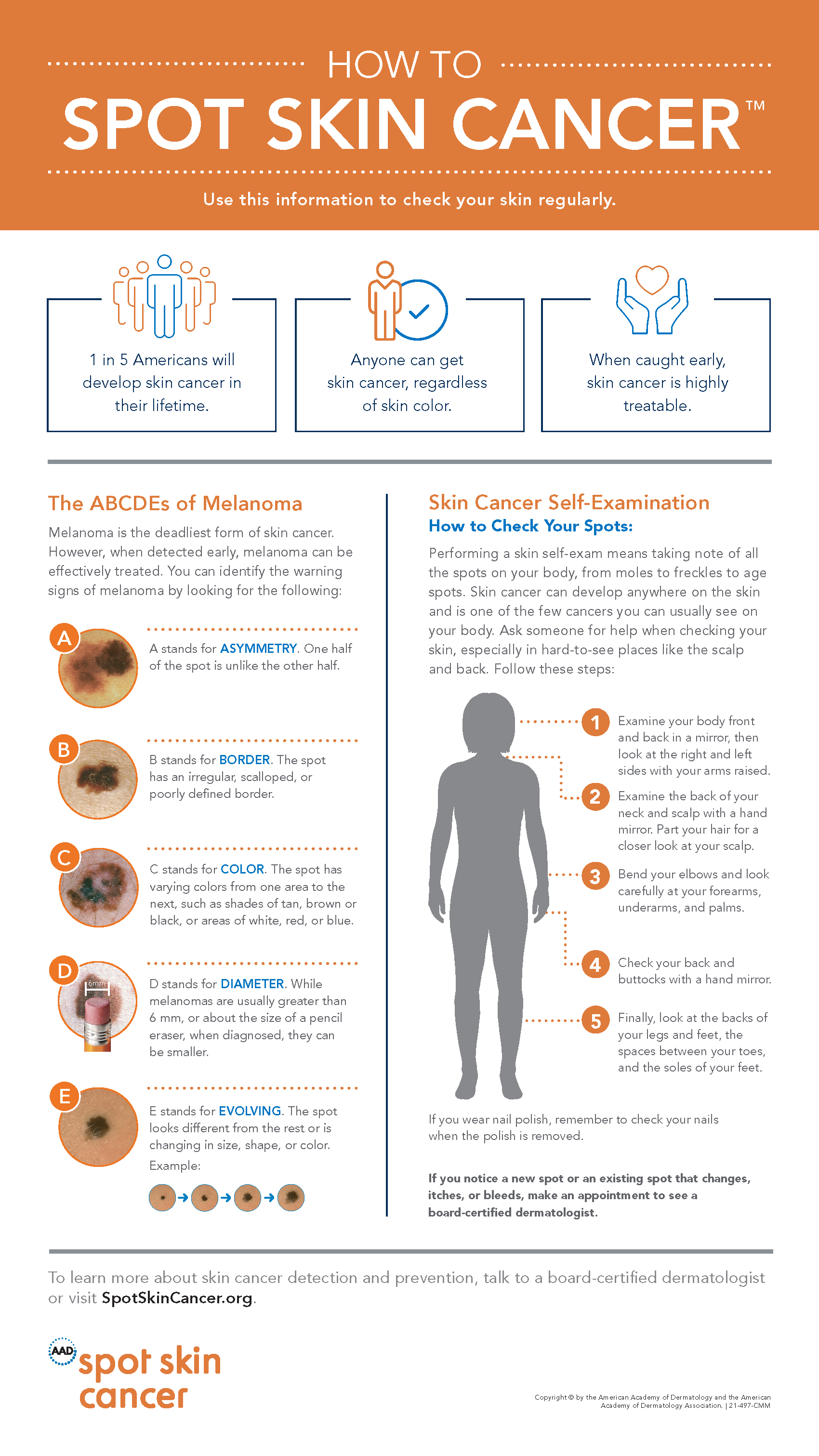Skin Cancer in Lake Forest, CA
Click here to learn how to spot a precancerous skin growth.
Exposure to UV rays results in the formation of almost 90% of all melanomas.
Services we offer include:
- Simple excision surgery - This procedure involves removing the tumor and surrounding tissue from the skin.
- Curettage and electrodesiccation - Commonly known as electrosurgery, this procedure involves using a curette to cut the tumor from the skin. An electronic needle is then used to kill the cancer cells that remain around the wound.
- MOHS Microscopically controlled skin cancer surgery
- Click here to read about Dermtech (Smart Sticker for Melanoma)
Dermtech Patient Resources - IG-SRT Radiation Therapy
Skin cancer is one of the most common types of cancer, affecting one in five people in the US, according to the Skin Cancer Foundation. Fortunately, your dermatologist is an expert at diagnosing and treating skin cancer.
Skin cancer can be caused by excessive sun exposure and you are at greater risk if you are fair-skinned, have a history of skin cancer, or you don’t wear sunscreen and spend a lot of time out in the sun. There are several types of skin cancer, some of which are easily treatable like squamous cell and basal cell carcinoma. There is another type of skin cancer, known as malignant melanoma, which is much harder to treat and can be fatal. You can protect yourself from developing skin cancer by following a few simple steps. You need to:- Wear a sunscreen of at least SPF 15 every day
- Wear a sunscreen of at least SPF 30 if you are out in the sun for long periods
- Avoid direct sun exposure from 10 AM to 4 PM, when ultraviolet rays are strongest
- A diameter larger than 6 millimeters
- An irregular, ragged border
- Come back after a previous removal
Your dermatologist can take a small sample of tissue and have it examined to determine if it is cancerous. This process is known as a biopsy and can determine what type of cancer and the stage of cancer you have. The DermTech Melanoma Test uses non-invasive Smart StickersTM to gently lift cells from the surface of the skin for genomic testing. If you do have skin cancer, several professional treatments are available from your dermatologist. Professional treatments include:
- Freezing cancerous tissue, known as cryosurgery
- Removing cancerous tissue, known as excision
- Removing cancerous skin layers one at a time, known as Mohs micrographic surgery
Skin cancer can be caused by excessive sun exposure and you are at greater risk if you are fair-skinned, have a history of skin cancer, or you don’t wear sunscreen and spend a lot of time out in the sun.
There are several types of skin cancer, some of which are easily treatable like squamous cell and basal cell carcinoma. There is another type of skin cancer, known as malignant melanoma, which is much harder to treat and can be fatal.
You can protect yourself from developing skin cancer by following a few simple steps. You need to:
- Wear a sunscreen of at least SPF 15 every day
- Wear a sunscreen of at least SPF 30 if you are out in the sun for long periods
- Avoid direct sun exposure from 10 AM to 4 PM, when ultraviolet rays are strongest
You should also check your skin regularly and look for moles that have:
- A diameter larger than 6 millimeters
- An irregular, ragged border
- Come back after a previous removal
Your dermatologist can take a small sample of tissue and have it examined to determine if it is cancerous. This process is known as a biopsy and can determine what type of cancer and the stage of cancer you have.
The DermTech Melanoma Test uses non-invasive Smart StickersTM to gently lift cells from the surface of the skin for genomic testing.
If you do have skin cancer, several professional treatments are available from your dermatologist. Professional treatments include:
-Freezing cancerous tissue, known as cryosurgery
-Removing cancerous tissue, known as excision
-Removing cancerous skin layers one at a time, known as Mohs micrographic surgery
When you are out in the sun, you need to protect your skin! To learn more about prevention, symptoms, and treatment of skin cancer, call the experts at Saddleback Dermatology, with our office in Lake Forest, CA. You can reach them at (949) 770-8115, so call now!


